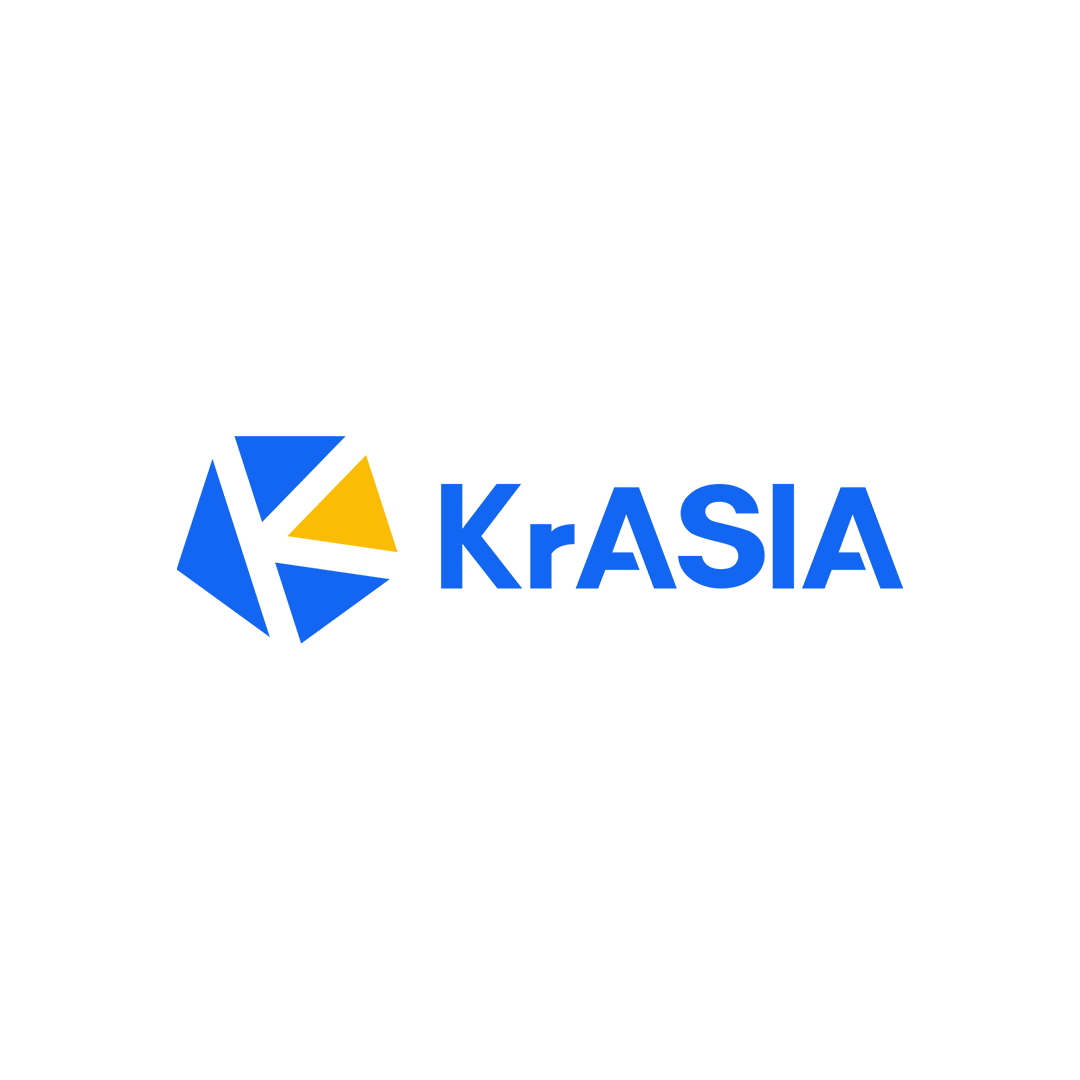Everest Medicines targets global expansion with proprietary, AI-driven mRNA platform
18 hours ago
After years of building a robust commercial base through in-licensing, Hong Kong-listed biopharmaceutical firm Everest Medicines is entering a new phase of growth: one defined by a “dual-engine” strategy that blends in-house innovation with global partnerships and in-licensing. Central to this effort is its clinically validated mRNA (messenger ribonucleic acid) platform the company believes can rival the best in class.
At Everest’s “mRNA Platform R&D Day” event on June 27, CEO Rogers Luo outlined the company’s progress over the past year in building a fully integrated and localized mRNA platform aimed at key therapeutic areas such as cancers and autoimmune diseases. Current priorities include next-generation cancer vaccines and a novel approach to in vivo CAR (chimeric antigen receptor) T-cell therapies, among other modalities.
These efforts build on Everest’s commercial track record, demonstrated by the successful launches of three core licensed products: Nefecon, Xerava, and Velsipity. Now, the Shanghai-based company is pursuing global ambitions by combining its licensing capabilities with mRNA innovation rooted by its proprietary platform. The platform was clinically validated during the pandemic with PTX-COVID19-B, a Covid-19 vaccine that reportedly showcased non-inferior immunogenicity and safety compared to Pfizer and BioNTech’s Comirnaty in a Phase 2 head-to-head trial on efficacy and safety.
Since then, Everest has increased its investment in mRNA as a core pillar of its innovation pipeline, with development programs targeting oncology and autoimmune diseases where it sees significant potential. Its current pipeline includes two cancer vaccine candidates, EVM14 and EVM16, as well as an in vivo CAR-T program enabled by a targeted LNP (lipid nanoparticle) platform exclusive to Everest—a potentially transformative approach to treating both cancer and immune-related disorders.
Investor confidence appears to be rising in tandem with these developments. Trading under the ticker 1952 on the Hong Kong Stock Exchange, Everest has logged a year-to-date gain of approximately 33% in 2025, with shares rising from HKD 48.65 (USD 6.2) at the start of the year to HKD 64.70 (USD 8.2) at market open on July 2. That puts the stock just below its intraday high of HKD 69 (USD 8.8), recorded on March 24.
The science behind mRNASpeaking at the June 27 event, CEO Luo described Everest’s mRNA platform as part of a broader transformation within the biopharmaceutical industry, stating mRNA will drive the next wave of medical innovation.
Per Luo, what sets mRNA apart is its shift from labor-intensive molecule screening to programmable information design. Much like writing software, scientists can modify mRNA sequences to produce various therapeutic proteins, turning the human body into a “programmable medicine factory” that’s capable of generating precision biologics on demand, with speed, modularity, and efficiency that traditional drug platforms are unlikely to match.
To illustrate this shift, he referenced a BioNTech-led study published in Nature in February, which examined the use of a personalized mRNA vaccine for pancreatic cancer. Among patients who received the vaccine alongside surgery, immunotherapy (PD-L1), and chemotherapy, the recurrence risk was reduced by 86%, with 75% of responders remaining cancer-free at a median follow-up of 38.4 months (3.2 years). This contrasted with historical data showing a median recurrence-free survival of just over 21 months for pancreatic cancer.
Luo contends that Everest is well-positioned to pursue similar breakthroughs, citing the company’s proprietary mRNA platform. Now in its third generation, the system uses an algorithm powered by artificial intelligence-based modeling to enable autonomous antigen selection and design. According to the company, this approach has improved the precision of neoantigen targeting and achieved up to a fivefold increase in protein expression compared to earlier iterations.
More broadly, Everest is among a small group of companies offering a fully integrated mRNA platform that combines AI with in-house capabilities across the entire development chain spanning antigen design, mRNA sequence optimization, LNP delivery, and scalable manufacturing. According to the company, this setup enhances efficiency in target screening, sequence design, delivery, and production.
Everest holds global rights to its platform and pipeline, structured around four core areas: personalized cancer vaccines (PCVs), tumor-associated antigens (TAAs), immune-modulatory cancer vaccines, and in-vivo CAR-T therapies.
Cancer vaccines in developmentAt the June 27 event, Everest execs highlighted the strength of the company’s proprietary platform by presenting three lead pipeline assets: vaccine candidates EVM16 and EVM14, along with its in vivo CAR-T program.
EVM16 is a PCV candidate developed using EVER-NEO-1, Everest’s third-gen neoantigen prediction algorithm. The system designs individualized mRNA sequences based on tumor-specific mutations unique to each patient, aiming to activate T-cell responses via LNP delivery. Preliminary clinical data suggest that EVM16 can induce good immunogenicity and specific T-cell responses even at low starting doses, underscoring the capabilities of EVER-NEO-1.
In August 2024, EVM16 entered a Phase 1 investigator-initiated trial at two leading cancer hospitals in China, with the first patient dosed in March this year. Even at the lowest dose, early data reportedly showed strong immunogenicity and specific T-cell responses.
EVM14, by contrast, is an off-the-shelf therapeutic mRNA cancer targeting five TAAs commonly found in squamous cell carcinomas of the head and neck, lung, and esophagus. Developed for broader applicability than personalized approaches, the vaccine aims to elicit robust immune responses in a predefined patient population.
In preclinical models, EVM14 reportedly induced dose-dependent immune activation, significant tumor regression, and durable immune memory—even in tumor rechallenge settings, where the same cancer cells were reintroduced after initial clearance. When combined with immune checkpoint inhibitors such as PD-1 or PD-L1, the candidate demonstrated enhanced anti-tumor activity, along with reduced recurrence and metastasis. These findings suggest the potential use of EVM14 in combination therapies.
Following IND (investigational new drug) clearance from the US Food and Drug Administration (FDA) in March, Everest is launching a Phase 1 clinical trial (EVM14 C101), with MD Anderson Cancer Center and Shanghai Chest Hospital among the participating sites. The first patient is expected to enroll in the third quarter this year. The first clinical-grade batch of EVM14 was released from Everest’s Jiashan facility on June 9 and is scheduled to arrive at US trial sites by mid-August. The company is also progressing toward IND submission in China.
LNP and in vivo CAR-T advancesPart of Everest’s platform moat lies in its delivery capabilities. According to chief scientific officer Jennifer Yang, the company has built an internal library of over 500 ionizable lipids to support its programs. Multiple in vivo studies have shown that this system can enable both liver and extrahepatic targeting, allowing for active and passive strategies in tissue- and cell-specific delivery. Everest says it is scalable and backed by a strong IP portfolio.
In preclinical animal models, Everest’s LNPs achieved organ-specific delivery by rerouting payloads from the liver to the spleen, a key site for immune cell activation. This was accomplished using passive diffusion strategies and antibody-based surface modifications.
These delivery refinements underpin Everest’s in vivo CAR-T program, which aims to bypass the logistical and clinical challenges of conventional CAR-T therapy. Rather than extracting and modifying T-cells externally, Everest encodes CARs into mRNA and delivers them directly into T-cells using antibody-tagged LNPs. Once inside the body, the T-cells express CARs on their own, potentially enabling a more scalable and less invasive alternative to autologous approaches.
In non-human primates, the platform achieved sustained CAR expression and effective B-cell clearance, two critical markers of therapeutic activity in both cancer and autoimmune disease. By combining mRNA-based programming with targeted delivery, Everest aims to establish a new class of cell therapies with broader applicability and streamlined manufacturing.
Industry momentum around the modality is building. On June 30, AbbVie announced a USD 2.1 billion acquisition of Capstan Therapeutics, a clinical-stage biotech firm developing vivo cell engineering via RNA delivery using targeted LNPs. The deal includes CPTX2309, a Phase 1 CAR-T candidate for B-cell-mediated autoimmune diseases, as well as Capstan’s proprietary platform for delivering RNA payloads (such as mRNA) to reprogram cell types in vivo.
Everest’s business strategyBeyond its pipeline, Everest continues to generate revenue through its in-licensed commercial portfolio, providing stable operating cash flow and financial headroom to support its in-house R&D efforts.
During a media exchange held alongside the June 27 event, the company noted that Chinese-origin assets have captured a growing share of global licensing activity over the past two to three years. As of 2025, nearly half of all upfront payments in oncology licensing deals had reportedly gone to Chinese assets, which made up approximately 40% of total deal volume. According to the company, demand remains strongest in oncology and autoimmune diseases.
And while heightened interest in Chinese-origin biotech assets may be part of the story, broader industry tailwinds are also at play. Grand View Research projects that the global mRNA therapeutics market will grow at a compound annual rate (CAGR) of about 17% from 2024–2030, expanding from USD 12.2 billion to USD 31.3 billion. Growth is expected to be most pronounced in the Asia Pacific, including China, driven by rising investment, infrastructure development, and an increased focus on precision medicine. Everest’s positioning, with its comprehensive mRNA capabilities and early clinical traction, places it squarely in the slipstream of this expansion.
Meanwhile, CEO Luo noted that Everest is currently in discussions with the world’s top 20 pharmaceutical companies, aiming to leverage global resources to accelerate the deployment of its assets internationally. Some parties are said to have already signed non-disclosure agreements. He added that the company is in no rush to finalize deals, preferring to let clinical value emerge through ongoing trials before pursuing formal partnerships.
The value proposition to partners, Everest argues, lies in a platform that has already demonstrated clinical feasibility across two of the most competitive areas in global drug development. “With end-to-end control of antigen design, sequence optimization, delivery systems, and large-scale production, Everest’s platform is among the few globally that has demonstrated clinical proof-of-concept,” Luo said.
This article was published in partnership with Everest Medicines.
...Read the fullstory
It's better on the More. News app
✅ It’s fast
✅ It’s easy to use
✅ It’s free









